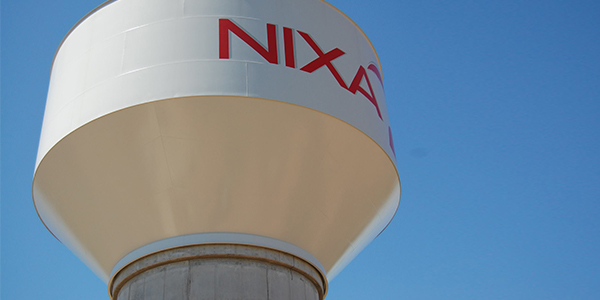FERC last week rejected a contested settlement agreement between SPP and GridLiance High Plains and remanded the proceedings back to the chief administrative law judge to resume hearing procedures (ER18-99).
In an order approved at its open meeting Thursday, the commission said SPP’s 2019 settlement offer was contested and could not be approved under any of the four Trailblazer approaches for approving contested settlements.
The docket was opened in 2017 when SPP proposed tariff revisions to add an annual transmission revenue requirement (ATRR), a formula rate template and implementation protocols for GridLiance-owned facilities in Nixa, Mo. The RTO decided to place the facilities in transmission pricing Zone 10 because they served load located there.
Several parties protested, including several cities in the zone, Nebraska Public Power District and a group of SPP transmission owners. FERC set the Tariff revisions for hearing and settlement judge procedures in March 2018.
GridLiance eventually reached an agreement with the Missouri cities that was certified by an ALJ last year. At the same time, the judge determined several issues were “arguably policy concerns that do not constitute genuine issues of material fact” and that the record contained substantial evidence upon which FERC could reach a decision in accordance with Trailblazer.
The TOs said the real issue was the originally proposed cost allocation, which would not be improved by the settlement. The commission agreed, saying the alleged cost shift caused by the Nixa assets’ inclusion in the zone was not addressed by the settlement.
FERC said its review of the record “shows that there may be a significant rate increase for Zone 10 customers upon the inclusion of the Nixa assets.”
“Based on the issues raised by the [TOs] with respect to the cost shift caused by the inclusion of the Nixa assets into SPP that we are unable to resolve based upon the record before us, we cannot approve the settlement under the first Trailblazer approach,” the commission said.
FERC did not address the merit of the TOs’ other issues because it rejected the first Trailblazer approach based on the cost shift issue.
Under the Trailblazer precedent, FERC may approve a contested settlement:
- “if [it] can address the contentions of the contesting parties on the merits.” The commission has held that it “cannot approve a contested settlement under this approach if some of the contesting parties’ positions are found to have merit or the record lacks sufficient evidence to support a finding on the merits.”
- “as a package on the grounds that the overall result of the settlement is just and reasonable.” The approach requires a “detailed and independent cost-benefit analysis … versus continued litigation.”
- “where it determines that the contesting party’s interest is sufficiently attenuated that the settlement can be analyzed under the fair and reasonable standard applicable to uncontested settlements, and the commission [makes] an independent finding that the settlement benefits the directly affected settling parties.”
- “for consenting parties and sever the contesting party or any contested issue.”
Basin Electric Rate Order Sustained
FERC last week also sustained a September 2020 order that accepted Basin Electric Power Cooperative’s 2020 rate schedule and wholesale power contracts but that also opened an investigation under Federal Power Act Section 206 into the rates’ justness and reasonableness. The order also granted clarification requests regarding the proceedings’ scope (ER20-2441).
In its September order, the commission found Basin’s rate schedule and power contracts with its 19 members raised factual issues that should be addressed through hearing and settlement judge procedures. It disagreed with intervenors’ arguments that a lack of withdrawal and termination procedures rendered the wholesale contracts unjust and unreasonable, saying each contract includes provisions requiring notice of termination for the contract term’s end. (See FERC to Investigate Basin Electric Rates; Danly Dissents.)
Wheat Belt Public Power District and McKenzie Electric Cooperative both filed clarification requests or, in the alternative, a rehearing of the September order. Dakota Energy Cooperative and Meeker Cooperative Light & Power Association filed a joint request for rehearing.
FERC denied the rehearing requests but granted Wheat Belt’s and McKenzie’s requests for clarification.
In other orders from last week’s meeting:
- the commission conditionally accepted SPP’s compliance filing that lets interconnection customers know where in the RTO’s business practices manuals or other coordination documents they may find the modeling details staff use when studying a project as energy resource interconnection service or network resource interconnection service. SPP has 30 days to revise sections of its “Guidelines for the SPP GIP Process and Business Practices” document (ER20-945).
- FERC approved an uncontested settlement agreement addressing the ratemaking treatment of Northwest Iowa Power Cooperative’s grandfathered agreements with MidAmerican Energy, saying it resolved all remaining issues set for the original hearing. The commission applied the Mobile-Sierra “public interest” presumption obligating it to treat any freely negotiated wholesale transaction as satisfying the requirement of justness and reasonableness unless it finds that the agreed-upon arrangements seriously harm the public interest (ER15-2115).






